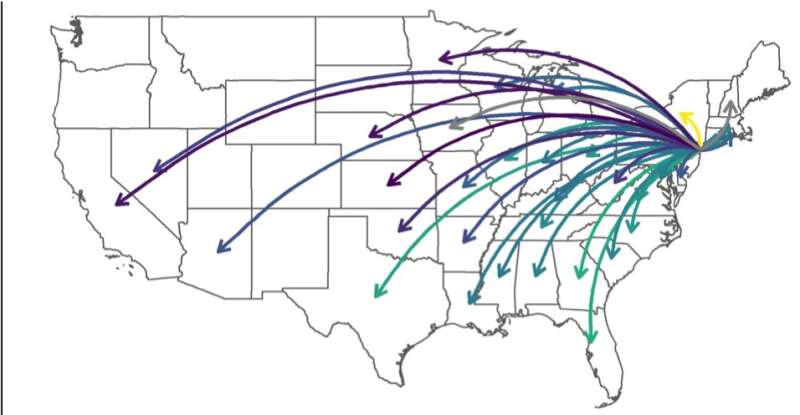
Inspired by their own experiences, representatives of a data-driven initiative to aid the COVID-19 response have outlined what they view as major obstacles to the successful use of novel data released by technology companies in times of crisis. Caroline Buckee of the Harvard T.H. Chan School of Public Health in Boston, Massachusetts, and colleagues present these views in the open-access journal PLOS Digital Health on January 18, 2022.
Technology companies collect vast amounts of data on their users, including users’ geographic locations. During the COVID-19 pandemic, many companies made some of their user data publicly available in order to aid public health efforts, such as monitoring the impact of social distancing policies or travel restrictions. However, Buckee and colleagues note, many efforts to harness these “data for good” failed to make a significant impact.
The authors are part of Crisis Ready (crisisready.io), in which epidemiologists help policy makers understand and use insights from human mobility data released by technology companies. In this capacity, they have now identified challenges that hinder other efforts to use novel forms of data as part of disaster response.
First, they note, data-sharing agreements between researchers and technology companies were hastily arranged during the pandemic. They call for data providers, researchers, and public health agencies to draw up pre-established agreements that will be ready for implementation in future crises.
Buckee and colleagues also observe that a lack of standardization, interoperability, and clarity on uncertainties or biases in novel datasets resulted in the need for highly specialized professionals to process this data. To address this challenge, data access and characteristics can be negotiated prior to a disaster.
The authors also call for global investment in training more professionals to be able to analyze complex data to produce insights that are useful for decision making during a disaster. In addition, they strongly emphasize the need for local response agencies to collaborate closely with regional scientists who, in turn, support each other through a global network.
Without such efforts, the authors say, no amount of data donated by technology companies will benefit communities during a crisis.
Source: Read Full Article
